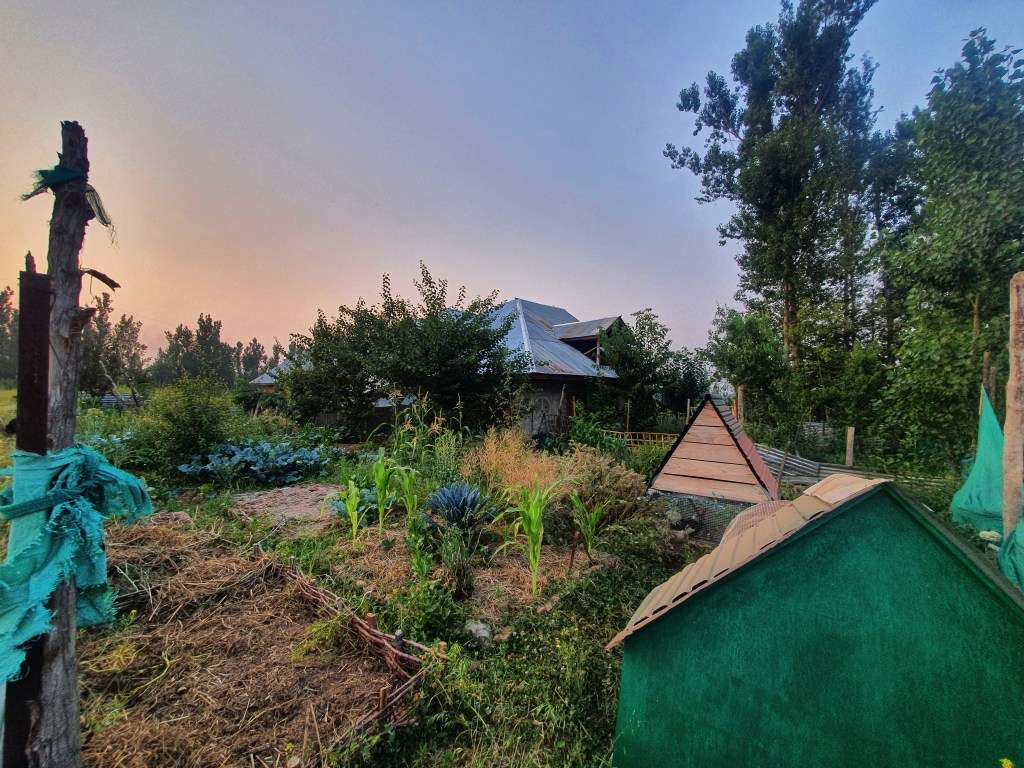Saalim Nazki, an MBA from Wales University who developed his interest in nature and started to look for it and found permaculture. To a utter surprise, Saalim converted a brick kiln in the remote Mahwara village of Budgam district into an organic farm, known as Permaculture Kashmir Valley.
To bring a breath of fresh air in Kashmir, Saalim Nazki, eight years ago transformed a land spoiled with the ashes, brick remnants, and dead soil by adopting the methods of permaculture into an organic farm.

According to Kashmir Monitor permaculture is a set of design principles including organic farming, agro forestry, integrated farming, sustainable development, and applied ecology. It is the best way to make future generations use the land in productive ways.
Saalim was joined by his younger brother, Muneeb Nazki and Maumoon Ahmad Lone who helped him in all the ways.
Saalim said that the journey had been too long but very fruitful. He further said that he wanted to switch from the idea of slash-and-burn model of agriculture to a gentler and more permanent method where fruit trees shade vegetable patches, perennial plants grow, are picked and plucked from, perish, form mulch, feed other plants, and start over. He also said that he wanted the birds to make a home here.
But to develop a plant life on the dead land doesn’t seem to be easy.
“The soil was de-generated to the extent that when we used to grow onions initially, the red brick remnants also came out with the vegetable produce,” Maumoon said.
Muneeb said that they did not use tractors on the farm but put cardboard on the soil and made holes in it for the saplings so that weeds doesn’t grow. He said that they wanted to show people how to regenerate soil by using less labor-intensive techniques.
Maumoon said that they don’t run after yield but try to create a sustainable land. Also he said that for learning growing exotics, agriculturists met them and around 300 farmers have taken the benefit of methods that they have acquired.
At present, the farm grows exotic as well as local vegetable and fruit varieties like cherry, apricot, peaches, figs, grapes, Broccoli, exotic tomatoes, pumpkins, herbs, purple lettuces, curly green kale, arugula, beetroot, and sweet corn Along with this, animals including sheep, hens, and cows are reared on the farm.